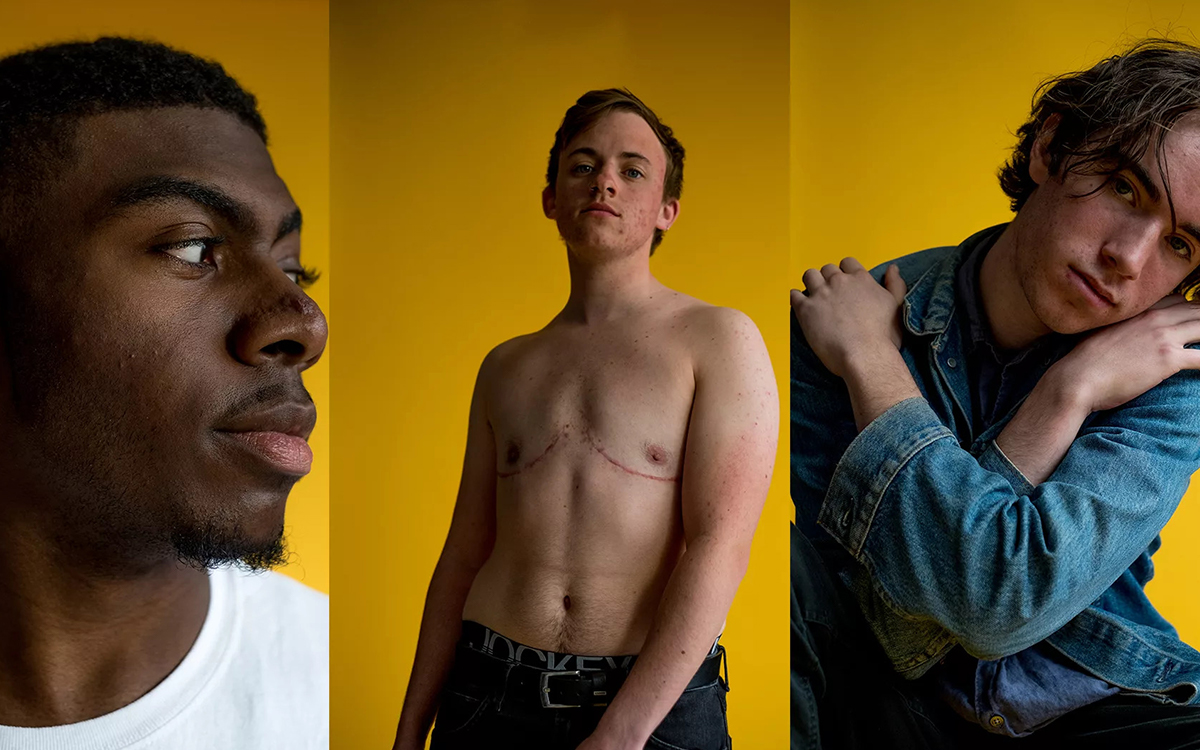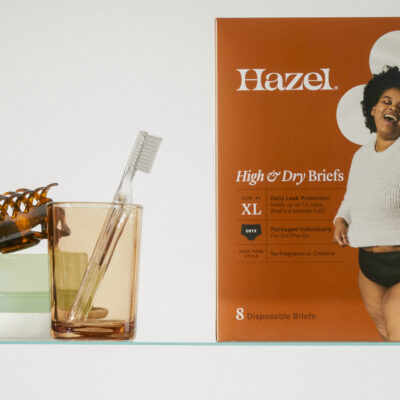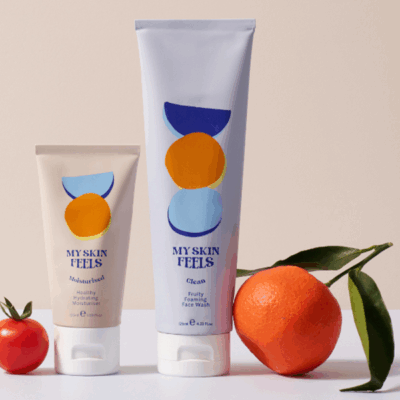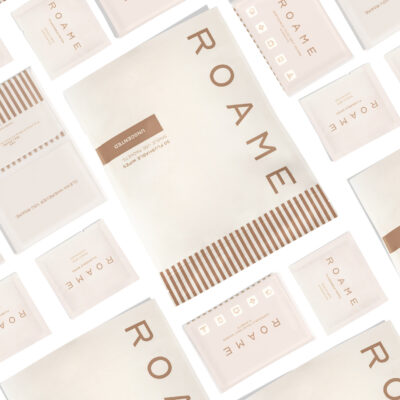
Very Good Light’s David Yi On Normalizing Men’s Makeup, Cancel Culture And TikTok
Very Good Light founder David Yi is undoubtedly the most slaysian editor-in-chief in the beauty journalism business. In fact, his penchant for slaying got him into the business. While editorial assistant at the New York Daily News in 2009, he was tapped to be fashion editor—at 23 years old, the youngest the publication ever had—because of his unabashed personal style. “I knew nothing about fashion. I didn’t even know I was interested in fashion,” says Yi. “They were like, ‘That kid, he’s going to do fashion.’ I had no clue what I was doing.”
In 2012, Yi progressed from the newspaper to freelancing for the likes of Elle, Esquire, Nylon and InStyle, and began appearing in front of the camera for a Fashionista TV show called “Haute Cuisine” that featured him cooking a Thai lunch with Chrissy Teigen and mixing cocktails with Betsey Johnson. In 2014, Yi took a job at Women’s Wear Daily covering men’s wear before moving to Mashable a year later to launch its first fashion and beauty vertical, where he produced viral stories, including The Lives of 11 Trans Teens and The State of Dress of Black Men in America. He also created a beauty spread for Snapchat Discover with Michelle Phan and a weeklong mental health initiative with Glenn Close. Yi’s work at Mashable snagged GLAAD Media and Webby award nominations.
Started in 2016, Very Good Light fused Yi’s interest in exploring masculinity, love for beauty and focus on underrepresented communities in personal essays, long-form articles, product reviews and how-to guides. “There was nothing resonating for guys like me who are into sheet masks or want to learn about Korean beauty or how to get a snatched look with makeup,” he says. “At that time, no one was writing about makeup or beauty for men in a normalized way. I really wanted to speak about beauty through a lens of redefining masculinity, and that’s how Very Good Light was born.”
Currently, the digital outlet’s unique visitors per month hover at around 2 million, skyrocketing from 13,000 four years ago. With the assistance of eight to nine writers, and executives Michael Engert, previously head of consumer for Supergoop, and Leif Glynn, who formerly held strategy and business development positions at Roc Nation and Under Armour, Very Good Light has become a rare relevant beacon for millennials and gen Z readers in a tarnished editorial landscape. Beauty Independent talked to Yi about its audience, TikTok, brand scouting, cancel culture and meaningful merch.

How do you find the brands that Very Good Light covers?
We have a morning meeting where we go over the rundown of the day—the morning news, what brands are popping, what people are talking about on social media—but I find brands in a multitude of ways. One is from those morning meetings or from conversations with my community and beauty editors, but a lot of it is from our own Very Good Light community. They DM us all the time and are like, “Hey, have you checked out this brand?” or they tag us. That’s really been an amazing way to discover new brands and, then, traditionally from publicists. If a PR firm is repping someone big, but they ask us to look at newer brands. I’ll definitely check those out.
Social media plays a big part. I think that TikTok is a new place to discover beauty, and it’s soon going to be surpassing Instagram in popularity. The younger generation are more active, nimble and passionate. Millennials are now getting married and having children, and don’t have a disposable income, but gen Z, they’re still pushing kind of the economy forward, and they’re the head purchasers of their households. So, whatever they say is cool, their parents are going to buy. They’re just the ones who are the tastemakers, not only in their own homes, but in their own communities. So, I think that TikTok is going to emerge soon as the leader of beauty and trends and finding new products.
How are you using TikTok?
TikTok is the now. It’s not even the future. We’re launching our TikTok officially the first week of July, and we’re going to go on as a verified publisher at launch. TikTok is absolutely important for us to find a new audience. A lot of the people who use TikTok, they’re not on any other social media apps. So, they’re not on Instagram, they’re not on Facebook or Twitter, they’re hardly on Reddit. These are new eyeballs and consumers or readers that you can tap into. So, TikTok, for us is becoming a lot more important. We’re going to put a lot of emphasis on it and invest in that medium.
People’s attention spans, fortunately or unfortunately, are very, very short. They really want small, snackable hits, and they want to get through videos and reviews quickly without going to YouTube and watching a 12-minute Jeffree Star video. We want to cater to our masculine-identifying readership, but actually we have about 50% male and 50% female readers. We want to cater to a younger demographic. We want to ensure that things are affordable. We want to have a consensus with the team. Like, are people really going to resonate with this? Is this brand problematic? Does this brand have a history of problems? Are they racist? Are they not inclusive? These are conversations we’ve always had from the beginning because it’s a POC-founded brand, but I really do think that these are conversations that hopefully other people are having now because it is a day of reckoning for everyone in America.

How do you handle it if you’ve already covered the brand that’s exposed as problematic or feel a past story is problematic?
What the right thing to do is to own up to your mistakes, own up to your blind spots or your racism or bigotry, and do better. A lot of CEOs have been stepping down, but I don’t think that people expected them to. When I talk to my BIPOC friends or LGBTQ friends, no one is asking for these people to step down. They just want them to do better. Because, if you think about it, when they step down, they’re maybe going to be replaced by a person of color, and that person has an impossible task now because they have so much to clean up. It’s almost setting them up for failure as well. We want the CEOs to be accountable. We’re not asking them to step down unless they’re super, super, super problematic; but own up to your mistakes, be human about it. See people, hear people. We want humanity.
I’m speaking on my behalf, but I don’t want to cancel someone. I think cancel culture doesn’t serve anyone or anything. We need more humanity. We need to stop calling people out. We need to call people in. And I think that, hopefully, in this new decade, we can call people in, have these humane conversations, not be so divisive, not be so scared to have these uncomfortable conversations. Do it in a way that we can move forward together because humanity deserves that, and we as a beauty community deserve that, too.
Sometimes, people are scared to say the wrong things, so they stay silent.
Yeah, I think there’s fear of being canceled. A lot of people don’t bounce back from that, but I don’t think that fear should overcome doing right and doing good in your good intentions. I also think that that comes from having a community of people who don’t look like you [and] hiring people who have different perspectives and backgrounds. We can change the system by being more inclusive, more diverse, and being brands and humans who stand for advocacy.

How does Very Good Light champion diversity?
Diversity is something that I don’t even see as diversity because it’s my world. I see the world from a POC perspective, so naturally the brand DNA is going to champion underrepresented voices, right? From the beginning, diversity, inclusion and underrepresented voices that have not been seen or heard by mass media has always been our No. 1 goal. We wanted to tell these stories when we launched in 2016. We did an entire video and photo shoot with Sikh American men, and why people fear turbans and why it’s so sacred and beautiful within Sikh religion and Indian culture. That’s a story that I still feel people are not telling enough of.
We did a beautiful photo series on Muslim American teens, and that’s still a story I feel like we’re not talking about a lot. We’ve always included diverse hair, skin and textures in all of our stories because we want to be inclusive. So, every angle we take, we’re always thinking about what next, who else can we represent? Is it the Indigenous community? Is it the Latinx community? Is it the Black trans community? We’re trying to be better with blind spots, too, but I also think we’ve been doing a good job with diversity because of who we hire and because of the perspective we have. We’ve always been an inclusive brand.
What type of products really stand out to your audience?
Our audience really loves skincare. K-beauty is something that they’re still really interested in. Acne, they really are obsessed with how to clear their skin, whether it’s from tretinoin or whether it’s from soxycycline or over-the-counter creams. In the future, we’re trying to focus more on cosmetics and makeup because I think that our audience is ready for that after three years. They’ve become experts in skincare, in sun creams and acne. Now, it’s about how to get that snatched look, how to bake your face, how to glow up. That’s definitely the new focus in 2020.

You have a sex vertical on the website. Why is that important?
We always have wanted to be a sex positive brand. We want to introduce a lot more stories with sex and dating. So, we’re trying to put more of an emphasis on sex stories, at least a handful a month. Gen Z, they want to know about sex, and they’re curious about sex. We want to be a platform where we just destigmatize it, make it less scary, normalize sex, and ensure that we are a sex positive culture.
What are two pieces of recent content that have been popular?
One piece of content that did really well a couple months ago was a conversation about who the gatekeepers of beauty are. We’re seeing a lot of straight CIS men starting to wear makeup on the red carpet like Ansel Elgort or Harry Styles. A lot of the LGBTQ community, they were calling them out saying that they’re co-opting gay culture. Then, other folks from the community were saying, “Hey, makeup has no gender or sexuality. Gay people or LGBTQ people are not the gatekeepers of beauty.” Evan Ross Katz wrote this for us and it was an amazing story. It was a very important discussion to have because I do feel as if the gay community, they do have a point, but then I also feel that, there’s a point to understand that beauty and cosmetics have never had a gender sexuality throughout history. So is there a right or wrong answer? I don’t know, but it was a discussion that was very interesting to have.

How has your content changed since the pandemic and the Black Lives Matter protests?
It’s more or less the same, but, since Black Lives Matter, we have definitely wanted to uplift our BIPOC community. We launched a merch site that we collaborated with queer BIPOC folks on, and 100% of those profits are going towards community initiatives. We have two designs. One is by an artist, @99perspective, [and supports Black Visions Collective]. The other is by @ISCREAMCOLOR and [supports the Marsha P. Johnson Institute]. We’ve created T-shirts and totes that just went on sale. We’re already sold out of our totes. We’re seeing ways that editorial can nimbly and humbly give back to the community, and see our initiatives can hopefully change lives. So, we’re more or less doing the same content, but now we’re activating with initiatives that can tangibly make change. That’s through currency and that’s through writing more about these communities as well.
How do you see the role of beauty and fashion editors evolving?
I feel beauty and fashion editors are required to become their own influencers. So, brands like Hearst are paying their editors to do sponsored content, and that makes sense because they are talent. It’s an interesting new world because you still need to be objective, and I still believe in journalism first. You need to be agnostic from brands. You need to kind of be a ghost and can’t play favorites. Try to be as fair as possible. But I also see that industry and advertising dollars are shifting. It’s almost impossible to just be a journalist without being also talent or an influencer. Brands need to understand that they need to give agency to fashion and beauty editors to become their own influencers, but also, in turn, these fashion and beauty editors need to see what their next steps are because there are going to be fewer and fewer publications to work at.
What’s ahead for Very Good Light?
Fortunately, I’ve never taken a cent. We have been bootstrapped, and it’s survived just by sheer will and luck and the community supporting us, but we are starting to look for investors now because we’re looking to pivot our business in a different, meaningful way. I am writing my first book with publisher Houghton Mifflin Harcourt called “Pretty Boys.” It’s about the history of men, makeup and masculinity from the beginning of time to today, how men have always used cosmetics to level up. That’s coming out in June of 2021, and it’s really exciting. It’s so in line with Very Good Light and what we do there.





Leave a Reply
You must be logged in to post a comment.